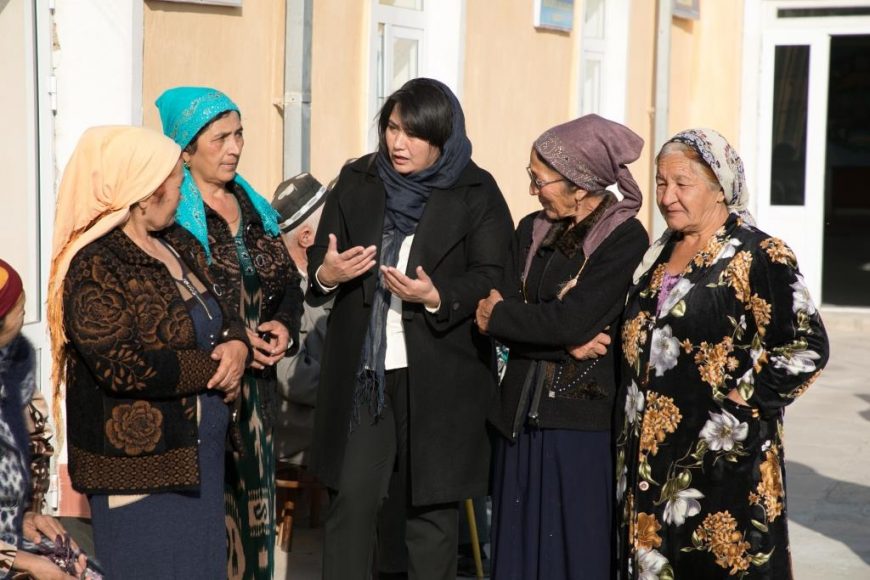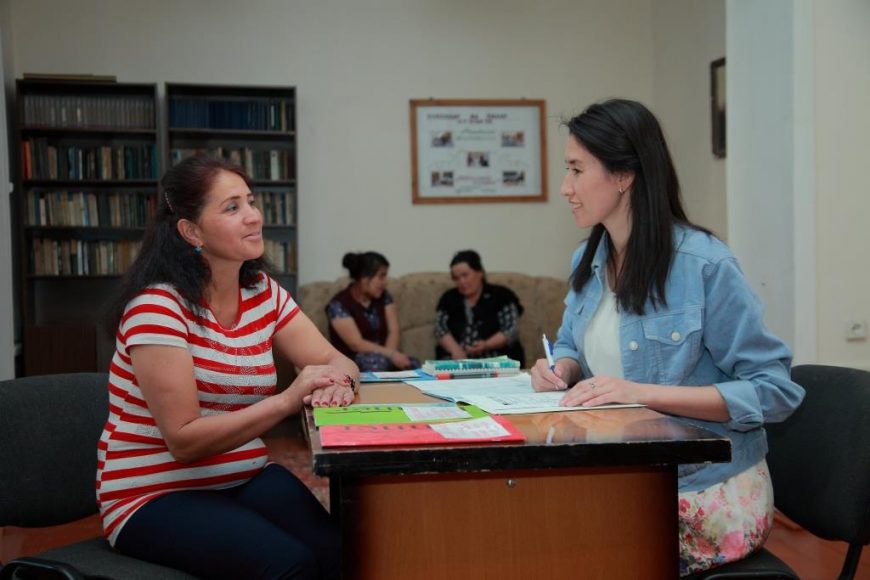ACTED Uzbekistan is implementing an EU-funded project to inform against discrimination
Since the beginning of 2018, ACTED Uzbekistan is implementing an EU-funded project to enhance women’s rights through increased protection and self-employment. In the frame of this action, a pilot assessment is currently being conducted across the different rural communities of the country, with the aim of identifying women vulnerable to domestic violence and depicting the context and behavioral patterns related to domestic violence in the targeted areas.

Domestic Violence, still largely a family matter in Uzbekistan
The issue of violence against women and girls, and of domestic violence in particular, has been for many years a very low priority in Uzbekistan, still often considered culturally as a “personal affair” and not as a “crime”. Due to a rebound of traditional patriarchal values since the Independence, families are increasingly imposing restrictions on women’s activities outside of home and promoting early marriage. Rural women are particularly at risk of violence against women and girls due to their “disadvantaged status”. In this context, although there is no official sex-disaggregated statistics on gender-based violence, incidences of violence against women within families are reported to be rather on the rise.
Advancing women’s right in Uzbekistan
ACTED’s action, funded by the EU through its Instrument for Democracy and Human Rights, is the result of joint planning between Mehr Kozda, a local CSO specialised in the provision of community-based social support for women in difficulties in Tashkent rural areas; the Oydin Nur Centre for Social Protection of the Family in Bukhara and the Rakjimdillik Shelter of Samarkand providing psychological and legal support to local women victims of domestic violence; and ACTED, present in Uzbekistan since 1996. Among the different activities of the projects, ACTED, with its three partners, is currently conducting a pilot appraisal at the communal level, in order to bypass the context of domestic violence in Uzbekistan, which obstructs the identification of potential beneficiaries of shelter services and limits the availability of information and data on domestic violence.
An appraisal for gender equality
The large-scale appraisal, conducted in Samarkand, Bukhara and Tashkent regions, will support the identification of beneficiaries of consultation services provided by ACTED’s NGOs partners, but will also allow to target awareness raising events.
Relying on ACTED’s methodology to interact with populations at the grass-root level, end of June the three partners started to carry out the appraisal, in coordination with the National Women Committee, a women-oriented body, present in the 14 regions of the country and in 219 municipalities and districts and enjoying significant proximity with the Executive. The activity, implemented in 10 target districts, through a series of 100 appraisal meetings with Mahallas (urban division in Uzbek communities) Committees and with local women, including women survivors and vulnerable women at risk of violence, to discuss gender equality issues will end early August 2018.
This series of appraisals will allow us to showcase and inform the realities women survivors or at risk of violence are facing, in a country where people sorely lack understanding on issues related to domestic violence due to persistent stereotypes

